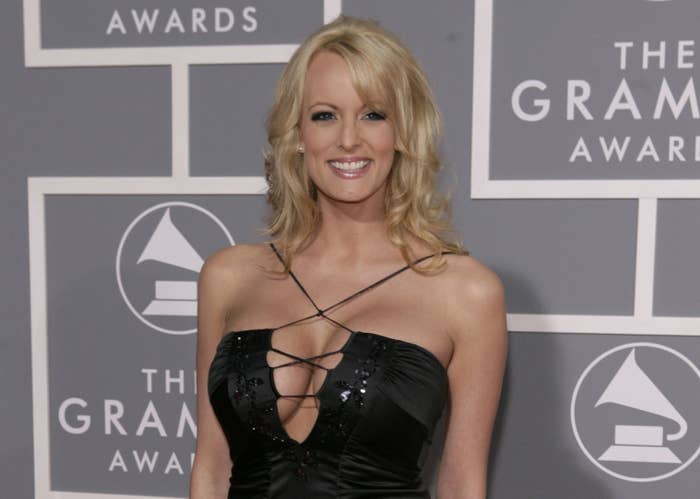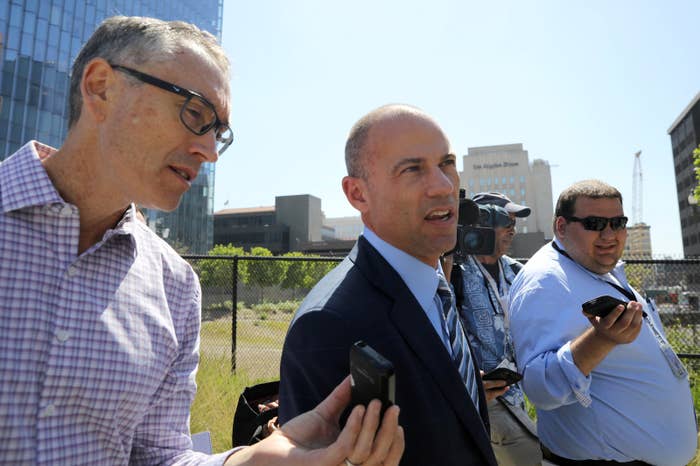
LOS ANGELES — The short-term fate of Stormy Daniels' efforts to speak out about her alleged relationship with Donald Trump remained up in the air Friday after a judge opted to wait to decide if the case should be postponed.
Daniels — a former adult film actor whose legal name is Stephanie Clifford — is suing to get out of a nondisclosure agreement she signed in 2016 barring her from speaking about the alleged relationship. Both Daniels and Trump's personal lawyer Michael Cohen signed the agreement, but Trump did not.
On Friday, Cohen's attorneys argued that recent FBI searches at Cohen's properties meant that the case with Daniels should be put on hold for 90 days.
"They took everything and they still have it," Cohen's attorney Brent Blakely argued, referring to the April 9 searches, which are part of an ongoing criminal investigation in New York. Blakely argued that Cohen would be unable to defend himself without access to the documents and that Cohen would be invoking his Fifth Amendment rights.
But Judge S. James Otero chastised Blakely in court for not having a declaration from Cohen himself stating that he would invoke the Fifth Amendment, which offers protection against self-incrimination.
"There are some gaping holes here," Otero told Blakely.
Otero ultimately gave Blakely until Wednesday to provide a declaration from Cohen.
Trump's lawyer, Charles Harder, also attended Friday's hearing in Los Angeles and was part of the request to postpone Daniels' suit, though Harder did not offer any verbal arguments in court. Neither Daniels nor Trump attended the hearing.

Daniels' lawyer, Michael Avenatti, strongly opposed efforts to postpone the case Friday. He told the judge that both the nature and the timing of the New York criminal investigation into Cohen remain unclear. He also argued that Cohen and his attorney should still have access to digital files, and that they should soon have access to all of the seized information.
"This is their motion and their burden, it was their obligation to come with admissible evidence and they failed to do so," Avenatti said, referring to lawyers for Cohen and Trump. "It's strategic and purposeful."
Avenatti also expressed fear that Cohen would soon face mounting legal fees and unemployment, making him unable to pay a potential defamation judgment, and that Cohen and his team "continue to hold the agreement over" Daniels' head.
But Otero countered that even with the nondisclosure agreement, Daniels has continued to make media appearances and comment on her alleged affair with Trump.
"She doesn't appear to be deterred," Otero added.
The issue ultimately boils down to whether or not there is significant overlap between the New York investigation and Daniels' suit. Both sides agreed that questions remain about the investigation, but Blakely said that the warrant to search Cohen's properties "specifically mentioned" Daniels and the $130,000 she received as part of the nondisclosure agreement.
"All of those documents are now at issue in the New York proceeding," he added.
Avenatti, however, disagreed with Blakely's arguments, countering that there's "no evidence of a substantial overlap at all."
In addition to giving Cohen until Wednesday to file a Fifth Amendment declaration, Otero also gave Daniels' team 24 hours to file a response. He did not say when he would decide if the case should ultimately be postponed.
